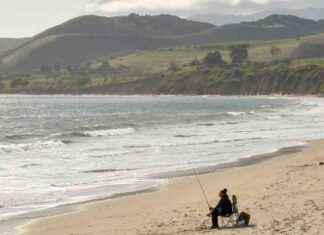Transport, the change of boilers and the decarbonization of factories are among the first target items of the measures envisaged by the government to accelerate the reduction of greenhouse gas emissions in France, according to a project presented Monday, May 22.
The action plan unveiled by the Prime Minister, Elisabeth Borne, and prepared by her General Secretariat for Ecological Planning proposes for the first time quantified objectives for the major sectors of the economy by 2030. To comply with the European objectives, France wants to reduce its emissions by 50% by 2030, compared to 1990, to reach 270 million tonnes of CO2 equivalent (MteCO2) per year, compared to 408 million in 2022, which means reducing them twice as fast as today.
This plan, which still needs to be discussed with the sectors and passed through a climate-energy law in Parliament, counts among other things on the electrification of cars and carpooling, but also on an effort in logistics (electrification or transition to hydrogen for vehicles, transfer to river and rail, etc. in the context of a boom in home deliveries.
Transport, the first source of emissions
Transport forms the main source of emissions in the territory (about a third of the total) and traffic is constantly increasing. The project presented by Elisabeth Borne also relies on the gradual disappearance of oil-fired boilers, in the tertiary and residential sectors, as already provided for by the law which prohibits new equipment… Moreover, and this is new, it aims to eliminate new equipment in gas boilers, according to methods not yet defined. An annual saving of 26 MteCO2 is expected.
In industry, the plan aims for an annual gain of 24 MteCO2 in 2030 thanks to the decarbonization of large sites, and a reduction of 11 MteCO2 on the rest of the industrial fabric.
This panorama was established by the Prime Minister’s services, which since 2022 have had a general secretariat for ecological planning, headed by Antoine Pellion and made up of around fifteen advisers.
To achieve the French objective of reducing emissions by 50% in 2030 compared to 1990, while France is only halfway there (i.e. at a reduction of 25%), a effort will be required of all: “No one will be able to hide”, they say at Matignon. “We ask a little of the small and a lot of the big”, with about half of the emission reduction efforts carried out by companies, a quarter by households and a quarter by communities, it adds.
According to Matignon, half of the levers identified are already in place (support for the purchase of electric cars, the greening of industry, law on renewable energies, etc.). For the rest, a series of thematic meetings is planned between ministers and stakeholders (energy, agriculture sectors, etc.), to refine this plan by the end of June, when a ” ecological planning council” around Emmanuel Macron. The major question of funding will arise, whether to encourage the purchase of electric vehicles or the replacement of boilers in homes.






